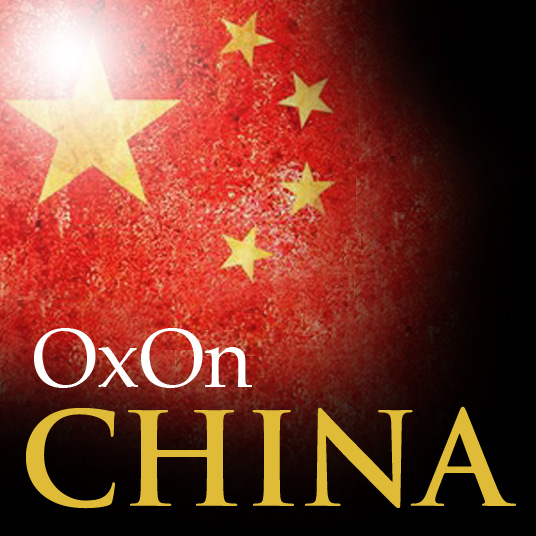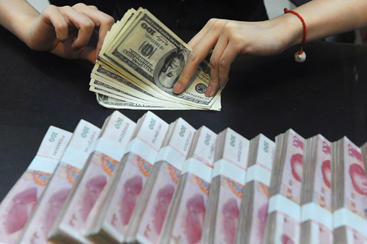
Liberty, Liberalism and Surveillance: a Q&A with Quentin Skinner
One of England’s most distinguished scholars, Quentin Skinner is a leading historian of political thought and an outstanding advocate of a contemporary republican viewpoint. This interview with Richard Marshall of 3:AM sets out an accessible overview of a lifetime of work. We are grateful to 3:AM for letting us republish it as part of Politics and Spires’ Democractic Wealth series. Open Democracy, our series partner, added at the end two additional questions about corporate power, surveillance and freedom. Skinner’s answer with respect to surveillance is a strong, clear statement of how it is a threat to liberty. This is especially relevant to current affairs given the superficiality of official and in particular British media responses to the Snowden revelations published by the Guardian’s Glenn Greenwald about the programmes of total surveillance being attempted by US and UK secret services.
RM: You are known as a leading historian of political history and in particular the formation of ideas around human liberty. One of the key ideas you’ve written about is what you label ‘neo-Roman’ liberty’. This began back in Ancient Rome didn’t it, where freedom was contrasted with slavery, wasn’t it? Can you tell us what its distinctive traits are?
QS: The vision of personal freedom that interests me is articulated most clearly in the Digest of Roman Law, which is why I have wanted to describe its later manifestations as examples of ‘neo-Roman’ liberty. The fundamental distinction drawn at the outset of the Digest is between the liber homo, the free person, and the servus or slave. The law needed to begin with this contrast because law applies only to free persons, not to slaves. So one crucial question was: what makes a slave? The answer given in the legal texts is that a slave is someone who is in potestate, in the power of a master. The contrast is with someone who is sui iuris, able to act in their own right. Long before these argument were summarised in the legal texts, they had been elaborated by a number of Roman moralists and historians, above all Sallust, Livy and Tacitus. These writers were interested in the broader question of what it means to say of individuals – or even of whole bodies of people – that they have been made to live in the manner of slaves. The answer they give is that, if you are subject to the arbitrary will of anyone else, such that you are dependent on their mere goodwill, then you may be said to be living in servitude, however elevated may be your position in society. So, for example, Tacitus speaks of the servitude of the entire senatorial class under the Emperor Tiberius, so wholly subject were they to his lethal caprice.

The Chinese transformation of corporate culture
Chinese state-owned enterprises of the 1980s reigned infamous for their inefficiency, poor quality and total dearth of customer service. There was simply too much politics and not enough emphasis on actually making products. Meanwhile, smaller, privately-managed corporations which filled in market gaps left by the state, were prone to fraud, exploitation, instability and short-term attitudes. They tended to collapse very quickly; overnight the boss might get arrested or leave with all the company’s money.
But some of these firms looked to the West and to Japan for inspired ideas to kick-start their ailing businesses. Among them was Zhang Ruimin, CEO of Haier Group, which started out as a struggling collectively-owned fridge manufacturer. As company legend goes, in 1984 Zhang checked one batch of Haier’s products and found 76 fridges to be defective. Rather than follow the usual practice of passing them on to second hand stores or employees, Zhang lined up all the defective fridges, took a sledgehammer and, with the help of Haier employees, smashed them to pieces to show that the company would not tolerate poor quality. He then introduced a rigorous quality control system to build a new “cultural mindset” of quality in his employees.

China’s international investment policy
Accession to the World Trade Organization (WTO) on 11 December 2001 was a watershed for China’s international economic relations. Joining the WTO meant that, after two decades of gradually opening its economy and markets, China formally accepted both the benefits and obligations of membership in a multilaterally negotiated rules-based regime governing international trade. The long march towards WTO accession – its pitfalls and challenges as well as the impressive surge in China’s import and export figures thereafter – have been well documented. But, somewhat in the shadows of these remarkable achievements in the field of multilateral trade policy, foreign investment has emerged as another important component of China’s international economic relations.

Is there a radical politics of virtue?
In today’s commercial republics, the “commercial” and the “republican” seem to be at odds. Commerce generates vast inequalities of wealth; the labor market generates overwork, underemployment, and precariousness; citizens are subject to myriad forms of coercion, surveillance and discipline. Yet a republic is supposed to uphold the freedom and equality of its citizens. Worse yet, the tradition of ‘republican’ political thinking seems to have only extreme answers available to it. In the name of protecting the virtue of its citizens, republicanism has often been hostile to the very idea of commerce. The production and accumulation of wealth, the enjoyment of luxury and leisure, are seen as corrupting private pursuits, drawing citizens away from public life and fracturing any sense of shared commitment to equality and the common good. The only solution is radical regulation. Impose severe restrictions on the production and consumption of wealth, eliminate wealth and poverty, and impose relative uniformity in economic activity. This was the classical republican solution, and neo-republicans have not done much to dislodge this view. As Jessica Kimpell put it in a previous post, “it would seem that contemporary thinkers would be even more vulnerable to this problem than classical republicans.”

Sino-Japanese War: A Q&A with Dr Rana Mitter, author of “China’s War with Japan, 1937-1945: The Struggle for Survival”
For the past few years, Professor Rana Mitter, one of the co-editors of our China blog, has been engaged in a research project aiming to better understand the process and relevance of the Sino-Japanese War between 1937 and 1945. Recently, he published his main findings in a volume that discusses the social, political and economic repercussions of the Japanese invasion and the Chinese response. We sat down with him to discuss it in more detail.
OxOn China (OC): What is the most important thing we need to know about the war with Japan?
Rana Mitter (RM): What distinguishes the Sino-Japanese war is that it really provides a breakpoint for Chinese modernity. A whole variety of longstanding traditions, patterns of landholding, and economic structures, changed forever. The fact that large swathes of Chinese territory were invaded and occupied was enormously disruptive. Local elites, for example, found themselves refugees, supplanted by an alien power. The political powerbase changed very suddenly, paving the way for the Communist revolution.

Post-growth: a green republican economy
We live in societies with economies nested within them, nested in turn in the non-human world. A green republican conception of political economy recognises this reality, and challenges the priority given to growth.
As Philip Pettit argues in his contribution to this series, republicans see the economy as a politically created arena of human activity, with an associated institutional infrastructure (such as the legal codes, tort, property rights, legal framework for economic enterprises, legal rules governing trade and exchange, etc.). It is neither ‘self-regulating’ or beyond legitimate political and democratic regulation and, where necessary, interference. Republicans do not see a difficulty with interfering with market relations for important non-economic, political reasons, such as to preserve civic freedoms, promote solidarity or shared common goods. They are concerned with ensuring the market is confined to its appropriate sphere, and that the ‘economics imperialism’ and the colonising effects of the market are limited, but without completely abolishing the market.
A green republican conception of political economy, however, is one that also begins its analysis from the observation that we live in societies with economies nested within them. Not the other way around. And both human economies and societies are themselves located within and completely dependent upon the non-human world.

“Illegal” Orphanages: Legality and Legitimacy in Chinese Culture
In January of this year, The Huffington Post reported on a fire that killed six children and one young adult “at an illegally run orphanage in central China”:
“The deaths Friday in Henan province’s Lankao county have spotlighted China’s lack of government-run child services. They are often left to private citizens with few resources and no legal authority. The Lankao government earlier acknowledged that it had turned a blind eye to the illegal orphanage, which cared for abandoned children and young adults. …The deputy county governor said earlier that some departments had failed in supervision and should shoulder responsibility.”
Unregulated orphanages are exceedingly common in China. Official government estimates put the number of “orphans” (the term is used loosely to include children who have been abandoned, and in fact have one or both parents still living – the Chinese term for orphan, gu’er (孤儿) – literally “solitary/lonely child” accommodates this) in China at over half a million as of 2011.[1] The state orphanage system designed to care for these children is characterized by a rural/urban dichotomy. Orphanages are located in urban centers; orphans and abandoned children in rural areas (who account for around 85% of the total orphan population) do not have access to these state-run institutions.[2] A variety of welfare programs exist in rural areas to support the indigent, including children without parental care, and many orphans and “foundlings” are taken in by relatives or neighbors[3]; but despite this, there is a conspicuous gap in the state’s orphan welfare program when it comes to rural China. This gap is filled, as the above article alludes to, by “private citizens with few resources and no legal authority”.

Economist Book review: China’s War with Japan, 1937–1945: The Struggle for Survival, by Oxford’s Rana Mitter
AS JAPANESE troops advanced on the Chinese capital of Nanjing in 1937, Zhou Fohai, a senior official in the Chinese government, wrote in his diary of the panic and fear consuming the city. He anticipated the destruction and its implications for his nation: “China will have no more history,” he wrote.
The devastation that the Japanese invasion would wreak was indeed shocking. But as Rana Mitter shows in his illuminating and meticulously researched new book about the Sino-Japanese war, not only did Chinese history not end with the fall of Nanjing, but in many ways the war helped to create modern China. It was the anvil on which the new nation was forged.
Other historians point to the arrival of British gunboats in the 1830s, when industrialising Europe collided with ancient China, as the dawn of China’s modern age. But Mr Mitter, a professor at Oxford University, believes that the country’s war with Japan was more important because it reduced China to its weakest state. “Suddenly the circumstances of war made the concept of the nation, and personal identification with it, more urgent and meaningful for many Chinese.”









